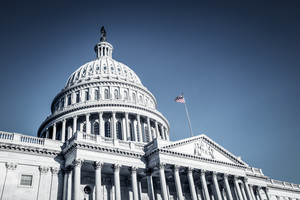
On February 7, 2022, the U.S. House of Representatives passed, and on February 10, the U.S. Senate approved, a bill (the Ending Forced Arbitration of Sexual Assault and Sexual Harassment Act (Act)) that would amend the Federal Arbitration Act (FAA) so as to invalidate clauses in employment agreements requiring employees to arbitrate claims of sexual assault or sexual harassment. The bill is expected to be signed into law by President Biden.
The Act provides that a pre-dispute arbitration agreement or pre-dispute joint-action waiver may be invalidated at the election of a person alleging conduct constituting a sexual assault dispute or sexual harassment dispute. In other words, if an employee signs an agreement to arbitrate employment-related claims and later experiences conduct that he or she alleges constitutes either a sexual assault dispute or a sexual harassment dispute, the employee may unilaterally dispense with the arbitration provisions to which the employee agreed and pursue such claims in federal, state, or tribal court, as applicable. Likewise, if the employee agreed to pursue claims only on an individual basis, and not as a representative or member of a class action, the employee may dispense with that pre-dispute agreement at their election and pursue claims on a joint basis with other alleged victims. All issues regarding arbitrability of such claims are to be determined under federal law and must be determined by a court, not an arbitrator, even if the parties otherwise agreed that matters of arbitrability are to be resolved by an arbitrator. This is a departure from arbitration decisional law, which generally allows parties to freely contract to allow an arbitrator to decide issues of arbitrability.
For purposes of the Act, “sexual assault dispute” is defined as a dispute involving a nonconsensual sexual act or sexual contact, as defined under federal criminal or comparable state or tribal law, including when the victim lacks capacity to consent. “Sexual harassment dispute,” by contrast, is defined more broadly to include disputes relating to any of the following: unwelcome sexual advances, unwanted physical contact that is sexual in nature (including assault), unwanted sexual attention (including unwanted sexual comments and propositions for sexual activity), conditioning professional, educational, consumer, health care, or long-term care benefits on sexual activity, and retaliation for rejecting unwanted sexual attention. If signed into law, the Act would apply to any dispute or claim that arises or accrues after its enactment, but would invalidate pre-dispute agreements entered into prior to its enactment.
Employees who have signed pre-dispute arbitration or joint action waiver agreements still have the option of arbitrating such claims, but if signed into law, the Act would ensure that the decision to arbitrate or not rests entirely with the claimant alleging sexual assault or sexual harassment. Many employees may still prefer a private forum to avoid scrutiny over private matters.
What is not clear is whether a claimant asserting sexual assault or harassment claims along with other employment-related claims can be compelled to arbitrate the non-sex-related claims. For instance, if an employee sued alleging race discrimination and sexual harassment, the Act would only permit the employee to opt out of a pre-dispute arbitration agreement with respect to the sexual harassment claim. Although employers may not want to litigate both in court and in an arbitration proceeding, on its face the Act would not preclude the employer from moving to compel arbitration of the race discrimination claim. These are matters we would expect to see litigated if the Act goes into effect, as is expected, with the U.S. Supreme Court historically weighing in favor of enforcing arbitration agreements to the greatest extent possible consistent with the FAA.
We will update the blog if the President signs the bill into law, as is expected soon.

